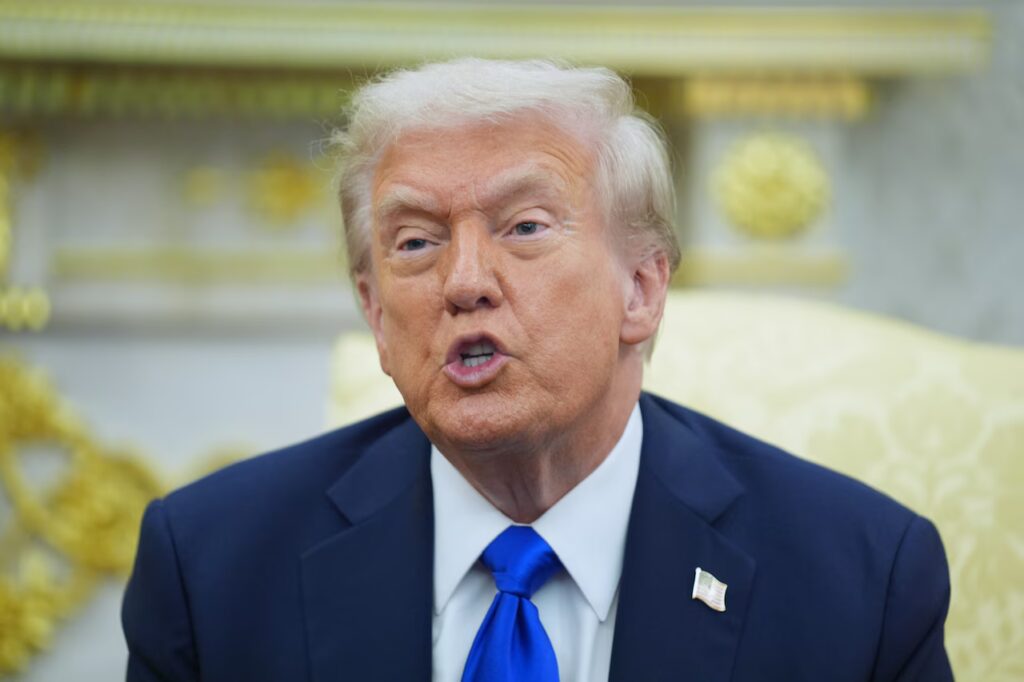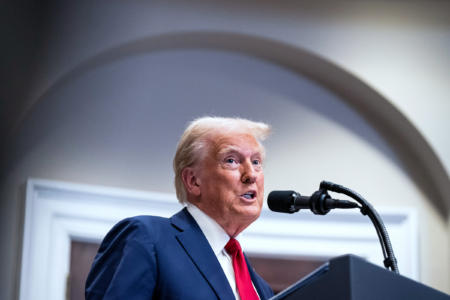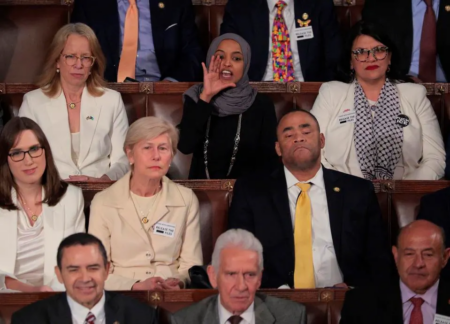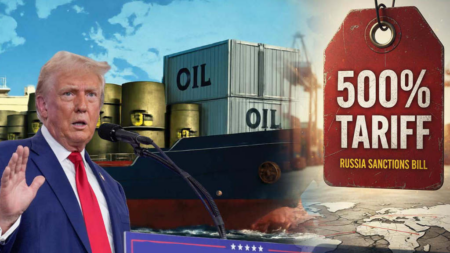American President Donald Trump has once again sparked international controversy, this time provoking anger in Somalia with comments made during a joint press conference with Canadian Prime Minister Mark Carney.
American President Donald Trump Compares Democrats to Somalia
Speaking about the Democratic Party amid discussions on the U.S. government shutdown, Trump compared Democrats to Somalia in remarks widely condemned as racist.
He said: “I get calls from Democrats who want to meet.
I never even known their names before.
And they’re claiming to be lead—the Democrats have no leader.
They remind me of Somalia.”
A Big Problem between Ilhan Omar and American President Donald Trump
Trump then continued, referencing Democratic Representative Ilhan Omar, the Somali-born congresswoman who has been the target of repeated xenophobic and racist attacks in the U.S. political sphere.
He said:
“And I met the Somali president, told him about the problem she made.
I said, ‘You got somebody from Somalia that’s telling us how to run our country.’
I said, ‘Would you like to take her back?’
He said, ‘No, I don’t want her!’”
Somali People Show Anger
These comments immediately ignited outrage in Somalia, where citizens and officials alike condemned the U.S. president for what they viewed as an attack not only on Representative Omar but on the Somali people and nation.
Social media platforms erupted with criticism, with hashtags highlighting the xenophobic nature of Trump’s statements.
Many Somalis expressed disappointment at the United States, a country long viewed as a partner in security and humanitarian assistance.
Read also: US Shouldn’t Guard Kenya and Somalia: Trump’s New Statement that Concerns East Africa in 2025
Did the Somali President Respond to American President Donald Trump?
President Hassan Sheikh Mohamud, Somalia’s leader, has not formally responded, but local advocacy groups have called for international condemnation.
Analysts note that such rhetoric reinforces negative stereotypes about Somalia and undermines decades of diplomatic efforts to strengthen the country’s global image.
Domestic Implications and Political Context
American President Donald Trump remarks were made in the midst of the government shutdown drama, where he claimed ignorance of Democratic leaders and downplayed his engagement with lawmakers.
Political analysts noted:
“His insistence that he doesn’t know who the Democrats are, and that they have no leaders, tells everything about how serious is Trump about the ending of shutdown”.
The president’s spokesperson confirmed that Trump had not reached out directly to Democratic leaders, instead working through proxies in Congress.
A Damage for Trump’s Domestic Credibility and His International Reputation
Meanwhile, he has repeatedly mischaracterized Democratic leaders, including House Minority Leader Hakeem Jeffries and Senate Minority Leader Chuck Schumer, often using racially charged language.
Critics argue that these antics, alongside policy mismanagement during the shutdown, are damaging both Trump’s domestic credibility and his international reputation.
The focus on blaming Democrats, combined with xenophobic attacks, underscores a broader pattern of divisive and inflammatory rhetoric.
Global Perception of Trump After Somali Remarks
Internationally, Trump’s comments have been widely criticized as undermining U.S. diplomatic credibility.
Somalia, a strategic partner in East Africa with close ties to the U.S., is now actively expressing disapproval. Experts suggest that global audiences may see Trump as insensitive, ignorant, and willing to engage in racially charged humor at the expense of foreign nationals and U.S. citizens alike.
The backlash highlights how the president’s rhetoric can complicate international relations and harm the perception of the United States as a global leader committed to equality and human rights.
Human rights advocates warn that such statements not only insult individual nations but also embolden xenophobic and nationalist movements worldwide.
Potential Strain in U.S.-Somalia Relations by the American President
Trump’s latest remarks serve as a reminder of the challenges the U.S. faces in balancing domestic politics with international diplomacy.
Somali anger over his statements signals a potential strain in U.S.-Somalia relations and highlights the broader implications of insensitive political rhetoric.
As the American President continues to navigate both domestic crises and his public image, the world watches closely—judging not just his policy decisions, but his approach to respect, diversity, and global leadership.








